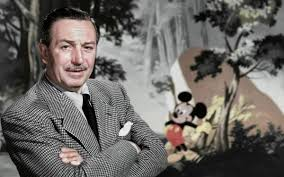Breaking Free: A Guide to Successfully Quitting Smoking
Smoking, a habit ingrained in many cultures, is a tough nut to crack. However, the decision to quit is a monumental step toward a healthier and happier life. In this blog, we’ll explore effective strategies to help you quitting smoking and embrace a smoke-free future.
- Understanding Your Motivation: Begin your journey by identifying why you want to quit. Whether it’s for better health, financial savings, or setting a positive example for loved ones, understanding your motivation provides a strong foundation.
- Setting a Quit Date: Choose a quit date that holds significance for you. This can be the beginning of a new week, month, or a memorable personal date. Having a concrete goal will mentally prepare you for the upcoming change.
- Seeking Support: Don’t face this challenge alone. Inform your friends, family, and coworkers about your decision to quit. Their support can be invaluable during challenging moments, and it creates a network of encouragement.
- Nicotine Replacement Therapy (NRT): Consider NRT options like nicotine patches, gum, lozenges, or nasal sprays. These aids can help manage withdrawal symptoms, gradually reducing your dependence on nicotine.
- Behavioral Therapy: Engage in behavioral therapy to address the psychological aspects of smoking. Identify triggers and develop coping mechanisms to replace smoking as a response to stress or specific situations.
- Prescription Medications: Consult a healthcare professional for prescription medications that can assist in quitting. Medications like varenicline or bupropion can help manage cravings and withdrawal symptoms.
- Healthy Lifestyle Changes: Adopt a healthier lifestyle to support your quit journey. Regular exercise not only improves your physical health but can also serve as a positive outlet for stress. Focus on a balanced diet to ensure your body is nourished during this transition.
- Mindfulness and Stress Reduction: Incorporate mindfulness practices and stress reduction techniques into your daily routine. Yoga, meditation, or deep breathing exercises can help manage stress without resorting to smoking.
- Create a Smoke-Free Environment: Make your living space smoke-free. Discard all cigarettes, lighters, and ashtrays. Wash your clothes and freshen up your living spaces to remove the smell of smoke.
- Celebrate Milestones: Acknowledge and celebrate your achievements along the way. Whether it’s a week, a month, or a year without smoking, each milestone is a testament to your strength and commitment.

The Silent Killer: A Glimpse into the Lives of Famous Figures Lost to Smoking
Smoking, a seemingly harmless habit, has claimed the lives of many prominent individuals throughout history. Here’s a brief look at some of the famous personalities whose legacies were cut short by the devastating effects of smoking.
- Audrey Hepburn: The iconic actress, known for her grace and elegance, fell victim to appendiceal cancer—a disease strongly linked to smoking. Audrey Hepburn, beloved for her roles in classics like “Breakfast at Tiffany’s” and “Roman Holiday,” passed away at the age of 63.
- Walt Disney: The creator of the enchanting Disney universe, Walt Disney, was a heavy smoker throughout his life. He succumbed to complications from lung cancer, underscoring the indiscriminate nature of smoking-related illnesses.
- Yul Brynner: The charismatic actor, renowned for his role in “The King and I,” was a fervent smoker. Yul Brynner’s battle with lung cancer serves as a poignant reminder of the destructive impact of tobacco use.
- George Harrison: A member of the legendary Beatles, George Harrison, lost his life to lung cancer attributed to years of smoking. His musical genius lives on, but his premature death highlights the urgent need for awareness about the dangers of smoking.
- Humphrey Bogart: The epitome of Hollywood cool, Humphrey Bogart, was an avid smoker on and off-screen. He faced a tragic end due to esophageal cancer, leaving behind a legacy that serves as a cautionary tale about the risks associated with smoking.
Benefits of Quitting Smoking:
- Improved respiratory health
- Reduced risk of heart disease and stroke
- Enhanced sense of taste and smell
- Better oral health and reduced risk of dental issues
- Increased energy levels
- Savings from not purchasing cigarettes
Damages of Smoking:
- Elevated risk of lung cancer
- Higher probability of developing respiratory conditions (COPD, emphysema)
- Increased risk of heart disease and stroke
- Negative impact on skin health, leading to premature aging
- Dental issues such as gum disease and tooth loss
- Adverse effects on reproductive health in both men and women
Quitting smoking is a challenging but rewarding endeavor. Remember, there is no one-size-fits-all approach. Tailor your quit plan to align with your unique needs. By combining various strategies and seeking support, you can break free from the chains of smoking and embrace a healthier, smoke-free lifestyle.
For professional help visit vituras.












One thought on “Breaking Free: A Guide to Successfully Quitting Smoking”